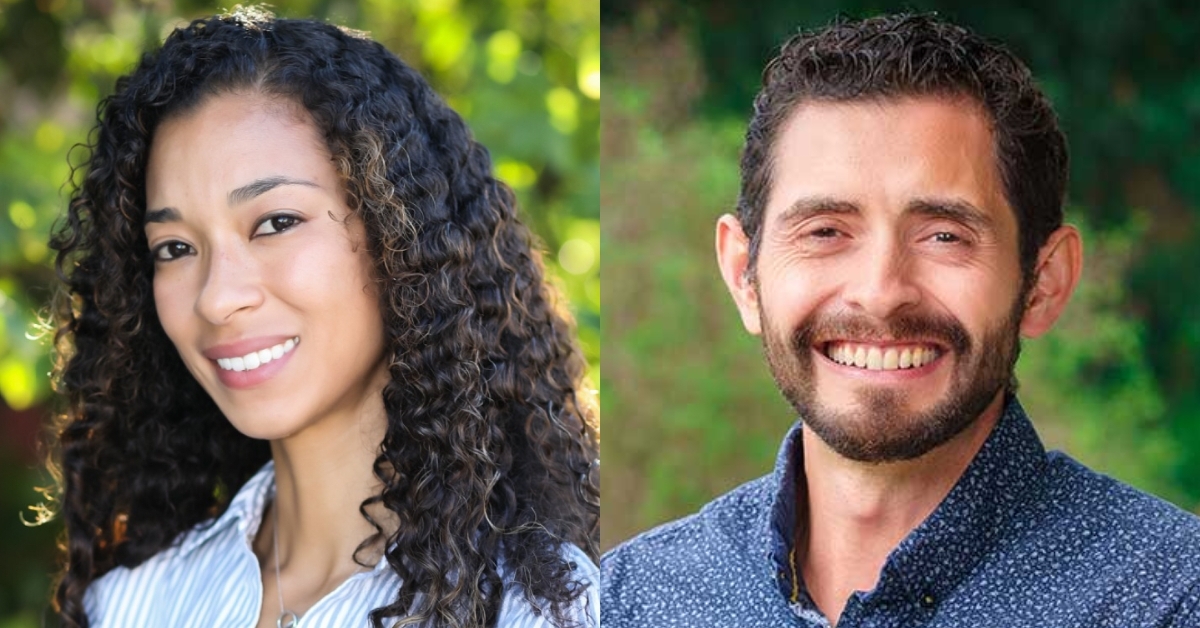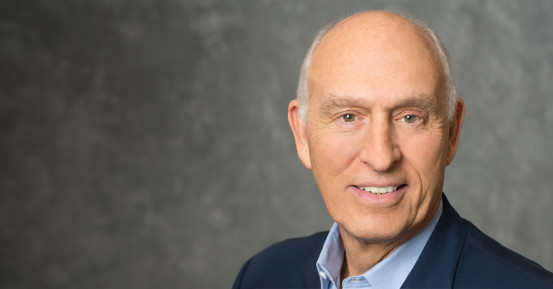UC San Diego Faculty Receive New EDI Award from Chan Zuckerberg Initiative
Story by:
Published Date
Article Content
As part of a new funding opportunity launched to promote equity, diversity and inclusion (EDI) in science, the Chan Zuckerberg Initiative (CZI), in collaboration with the National Academies of Sciences, Engineering and Medicine, has selected University of California San Diego Assistant Professors Brian Aguado and Sonya Neal as two of 25 grant recipients in the new program.
CZI created the Science Diversity Leadership (SDL) program to support the efforts of outstanding early- to mid-career researchers with a track record of promoting EDI in science through outreach, mentoring, teaching and leadership.
As two of the program’s first grantees, Aguado, an assistant professor of bioengineering, and Neal, an assistant professor of cell and developmental biology, will each receive $1.15 million over five years to develop new programs that create avenues of accessibility and inclusivity for underrepresented minority (URM) students in science and engineering. The National Academies collaborated with CZI to administer SDL applications and convened experts to review applications.
“To increase diversity, equity and inclusion in the biomedical sciences, we must do everything possible to attract, retain and nurture top talent at our colleges and universities,” said National Academy of Sciences President Marcia McNutt, in the SDL program’s launch announcement.
Aguado, a faculty member in the Jacobs School of Engineering’s Department of Bioengineering, studies sex-specific differences in disease—starting with cardiovascular disease—from the molecular scale all the way up to the organism level. He uses bioengineering tools to develop more relevant, sex-specific models and treatments for cardiovascular disease, enabling better clinical outcomes for patients who have long been ignored. With support from this CZI award, Aguado and students in his lab will address sex and ancestral disparities in a type of heart disease called aortic valve stenosis. They will use advanced biomaterial-based tools to engineer sex-specific and ancestral-specific disease models of aortic valve stenosis and define precision drug treatments for diverse patients.
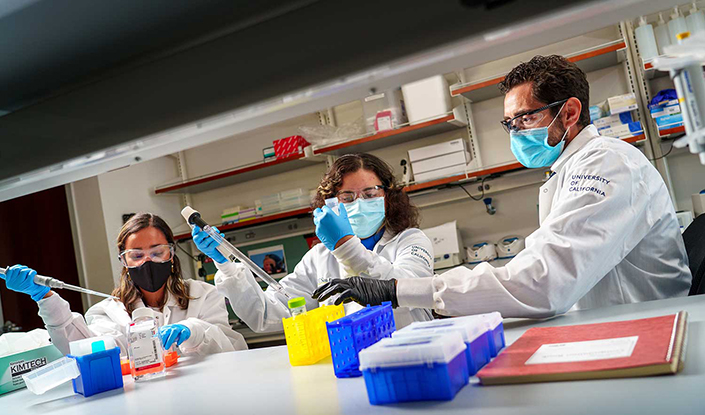
Neal, a faculty member in the School of Biological Sciences’ Department of Cell and Developmental Biology, researches mechanisms related to misfolded proteins in cells and how organisms handle such potentially toxic threats. Under one line of research, her lab investigates a family of enzymes known as rhomboid proteases (Rhbd14) as a potential new target for triple-negative breast cancer, an aggressive disease that accounts for nearly 20% of all breast cancer types and disproportionately causes death in Black women. The research, which CZI is supporting, will be carried out by a diverse team of scientists including Postdoctoral Scholar Satarupa Bhaduri, graduate student Rachel Kandel, undergraduate student Jasmine Jung and Pharmacology Professor Joann Trejo, who is known for her groundbreaking studies on G protein-coupled receptors (GPCRs) and is a champion for diversity and inclusion efforts on the institutional and international scales.
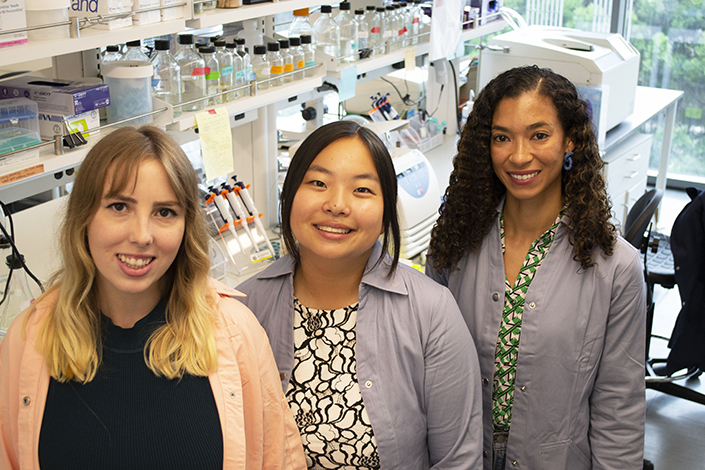
Research under the CZI EDI award will be carried out by a diverse team of scientists including Assistant Professor Sonya Neal (right), Postdoctoral Scholar Satarupa Bhaduri (not pictured), graduate student Rachel Kandel (left), undergraduate student Jasmine Jung (center).
In addition to research, the Science Diversity Leadership award also includes a focus on outreach. Neal designed the framework of her SDL proposal and other URM-focused programs at UC San Diego based on her own experiences as a Black female and first-generation college student.
In 2020, as uncertainties surrounding the COVID-19 pandemic rippled across academia, Neal and Biological Sciences graduate students Tara Spencer and Sumedha Ravishankar created the Biology Undergraduate and Master’s Mentorship Program, or BUMMP, with anonymous donor support. They designed their initiative to support underrepresented undergraduate and master’s students with a network of mentorship and resources. In the two years that followed, BUMMP quickly expanded and now features more than 500 underrepresented students matched with mentors.
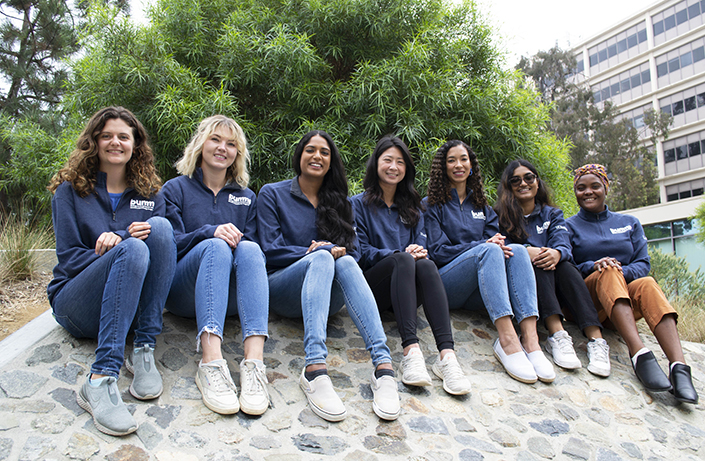
Assistant Professor Sonya Neal (third from right) and Biological Sciences graduate students Tara Spencer (far right) and Sumedha Ravishankar (third from left) created the Biology Undergraduate and Master’s Mentorship Program, or BUMMP, to support underrepresented undergraduate and master’s students with a network of mentorship and resources.
Under the new CZI grant, Neal will build on the BUMMP program to provide URM science students with unique research and drug discovery opportunities as well as boost scientific literacy and accessibility, all under an umbrella of a supportive and inclusive environment. BUMMP will partner with UC San Diego’s Research Methodology Training Laboratory, which for more than 20 years has trained first-generation and underrepresented students for careers in biomedical and health sciences.
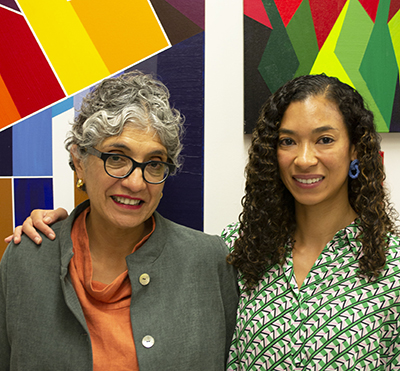
Research funded under the new CZI grant will be carried out by a diverse team of scientists, including Pharmacology Professor Joann Trejo (left) and Biological Sciences Assistant Professor Sonya Neal.
“The long-term goal for this grant from CZI is to serve URMs at an unprecedented scale,” said Neal. “This award sets the stage to demonstrate how important it is to have an academic setting where diversity thrives and a curriculum based in an equitable environment for underrepresented students.”
Neal will organize an annual eight-week hands-on research experience course with URM students recruited from BUMMP and San Diego community colleges. The training course will integrate research conducted in Neal’s laboratory with a curriculum in which students perform research on Rhbd14 and characterize promising anti-tumor drug candidates for triple-negative breast cancer. Such experiences will open opportunities on research papers, science presentations and connections with others in the scientific and industry communities.
“Through Assistant Professor Sonya Neal’s leadership and CZI’s valuable support, hundreds of students from underrepresented backgrounds will be able to participate in an immersive research experience in a nurturing environment,” said School of Biological Sciences Dean Kit Pogliano. “I cannot wait to see the positive ripple effects this new program will have on underrepresented students and the transformative impact they have in their future careers.”
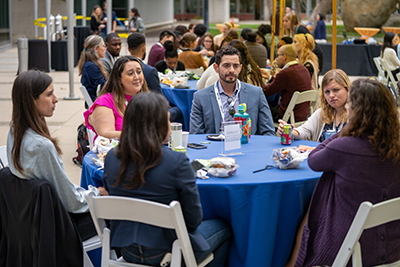
Similarly, Aguado will use support from this CZI grant to expand an outreach effort he co-founded in 2019 based on his experiences as a LatinX researcher in biomedical engineering. Aguado, who is of Colombian descent, co-founded the LatinX in Biomedical Engineering (LatinXinBME) community to support diversity within the scientific community. The group has grown to a community of more than 420 members from around the country, seeking mentorship, advice, and a sense of inclusion.
With support from CZI, UC San Diego will host the biennial LatinXinBME Symposium in 2023, providing travel awards for community college, undergraduate and graduate students as well as postdoctoral scholars to be able to attend the meeting. Aguado also plans to launch a LatinXinBME research experience for undergraduates (REU) program at UC San Diego, providing paid hands-on biomedical research experiences for LatinX students.
An official UC San Diego chapter of LatinXinBME will also launch, with a goal of partnering with community colleges in San Diego to host local mentorship and outreach events to build community within the region. And on an international scale, CZI support will be used to help fund LatinXinBME member participation in international outreach and science communication opportunities like Clubes de Ciencia to engage with Latinx grade school students and expand the organization’s impact internationally.
“Brian is one of the Jacobs School of Engineering’s new faculty members, and he has wasted no time in making an impact both with his research and his work to make science a more welcoming and equitable field for all,” said Albert P. Pisano, Dean of the Jacobs School of Engineering. “Hearty congratulations on this wonderful recognition, and I look forward to seeing the fruits of these efforts in the years to come.”
CZI previously announced a $500 million investment over five years to support organizations leading the way to advance racial equity, diversity and inclusion. CZI funds also support Black, Latina/o/x, and Indigenous students who are pursuing STEM degrees at UC San Diego through the PATHways to STEM (PATHS) through Enhanced Access and Mentorship, a program started by Biological Sciences Professor Gentry Patrick.
“Too often, people of color employed as science faculty face additional burdens and expectations, including serving on committees unrelated to their scientific endeavors and performing extensive mentoring of Black and Brown students and trainees without compensation. This ‘diversity tax’ limits their time to focus on doing great science, yet these scientists are essential to advancing their fields and as role models and mentors,” said Dr. Hannah Valantine, a leading cardiologist, former National Institutes of Health Chief Officer for Scientific Workforce Diversity and CZI Senior Science Advisor, in the SDL launch announcement. “The STEM career path is an excellent avenue to opportunity, but entry requires mentoring that starts in pre-college education and continues into professional life.”
More information about the selected grantees of CZI’s Science Diversity Leadership program is available here.
-- With information from the Chan Zuckerberg Initiative
Share This:
You May Also Like
Stay in the Know
Keep up with all the latest from UC San Diego. Subscribe to the newsletter today.
